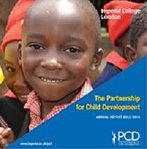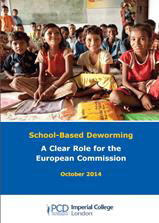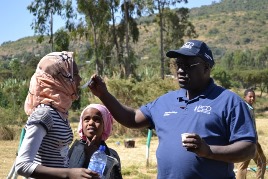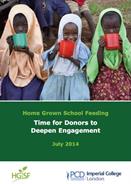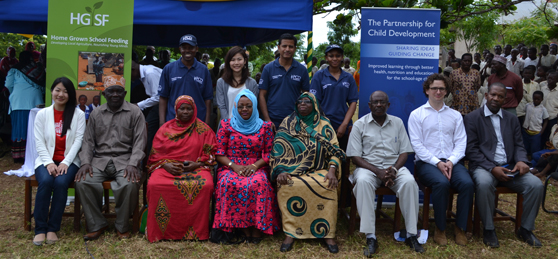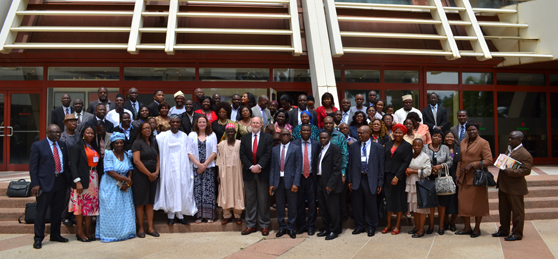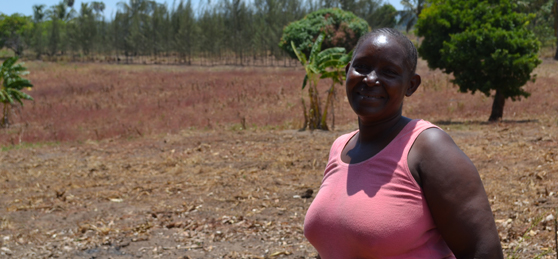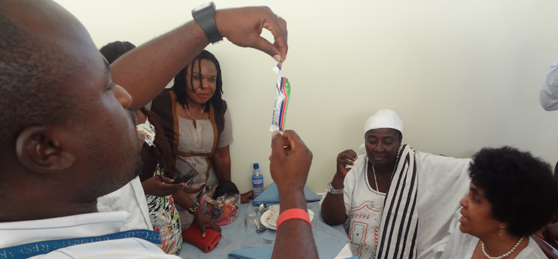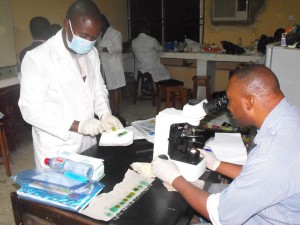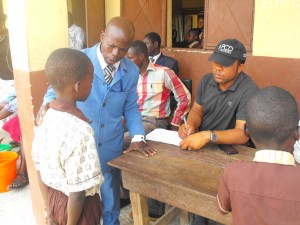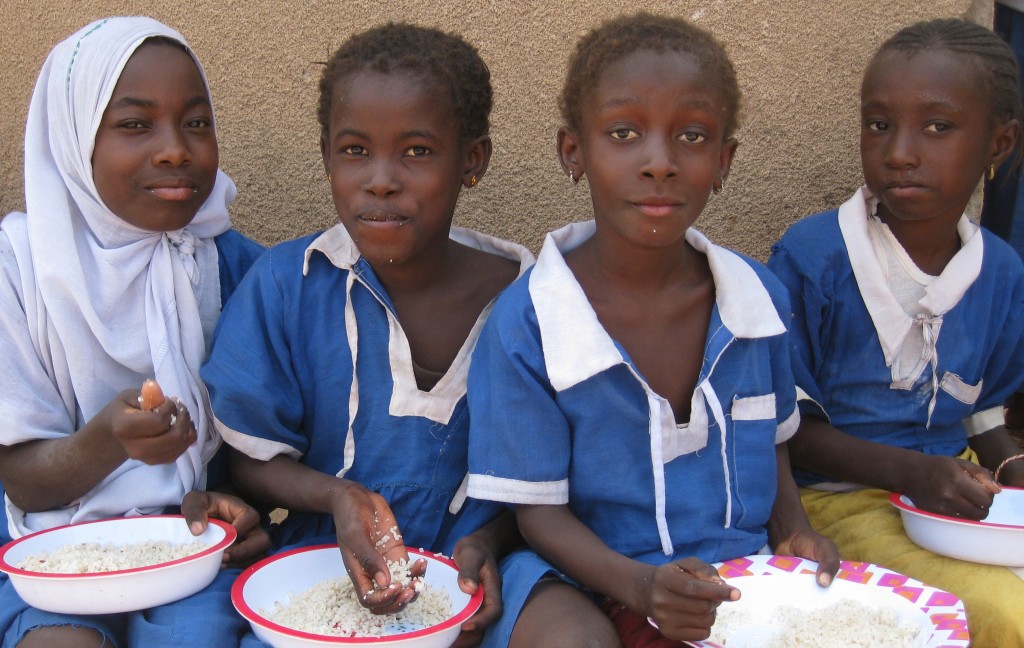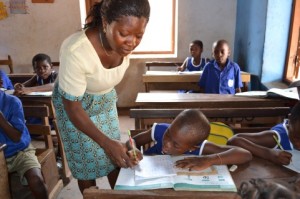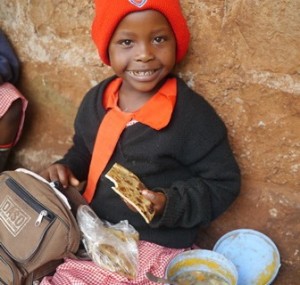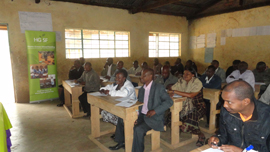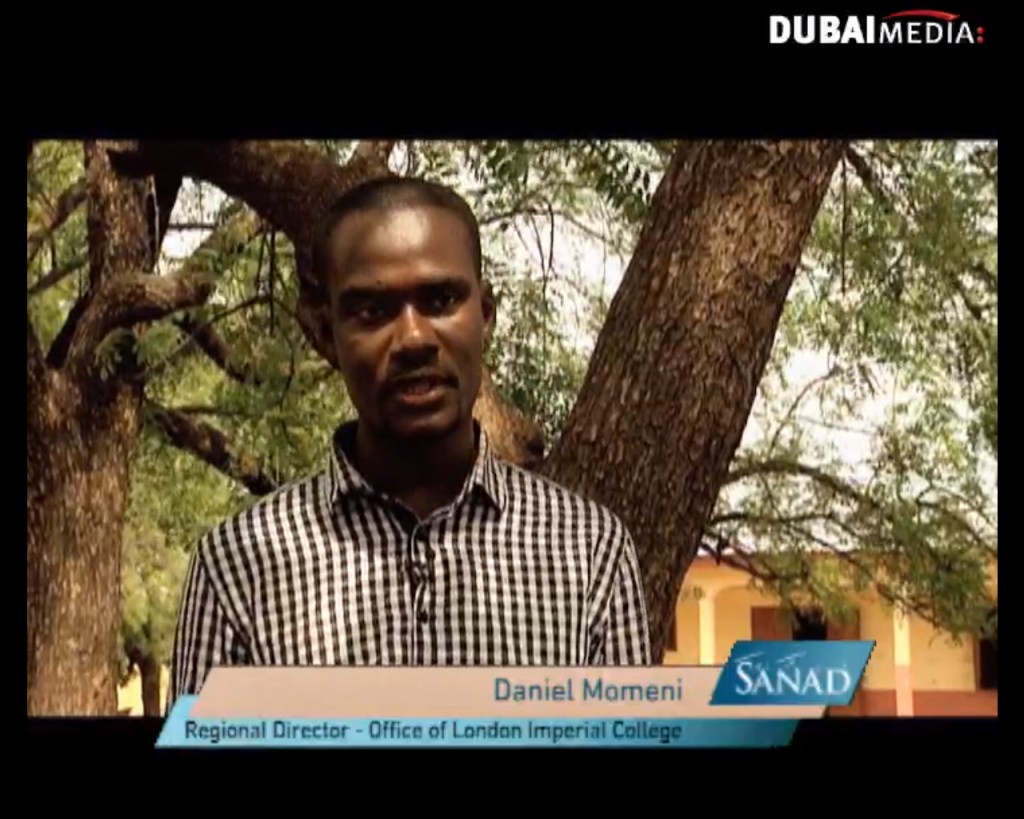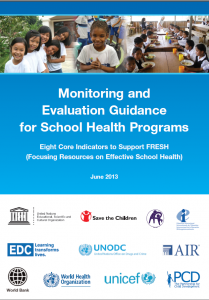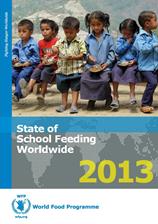Events
 Bill Gates talks school feeding with Ghanaian farmers, teachers and caterers
Bill Gates talks school feeding with Ghanaian farmers, teachers and caterers
During his first ever visit to Ghana, Bill Gates joined the Partnership for Child Development to talk with smallholder farmers, teachers and caterers to better understand the issues and opportunities presented by Home Grown School Feeding (HGSF) programmes. The Bill and Melinda Gates Foundation have been supporting the development of government-led, HGSF programmes since 2009. These nationally owned programmes enable schools to procure the ingredients for their school meals from local smallholder farmers. The benefits of programmes, such as Ghana’s School Feeding Programme (GSFP), are felt by the school child and farmer alike with school children getting free nutritious hot meals whilst the farmer gets access to a regular market, providing a win-win for both education and economic development.
Find out more.

Dubai Cares visits Ghana
PCD recently accompanied a Dubai Cares team visit to Ghana who carried out a number of field visits to monitor and evaluate aspects of the GSFP they are supporting through PCD. This support is focused on improving the nutritional quality of food in school meals and consists of three key components: community sensitization, providing advice to farmers and a deworming programme.

The second annual School Health and Nutrition (SHN) course in Southeast Asia
The second annual SHN course was held in Laos between 13–20 February 2013. Hosted by the Laos Ministries of Health and Education and supported by PCD, the Japan Consortium for Global School Health Research and Mahidol University, the course trained 40 participants drawn from governments, development partners and SHN organisations from 11 Asian countries in the region.
Download course information and presentations.
Programme Implementation
 Botswana Case Study Report launch
Botswana Case Study Report launch
Botswana’s National School Feeding Programme: A Case Study and Transition Report was officially launched by the Ministry of Local Government and Rural Development at a meeting in February. This was attended by the New Partnership for Africa’s Development (NEPAD) and PCD. Participants also agreed to a launch of the HGSF programme on 19 April 2013.
Download Botswana’s National School Feeding Programme: A Case Study.
Dental health and hygiene programme, Osun State, Nigeria
A total of 90 school health promoters and 966 teachers from 322 schools were trained as part of a pilot programme to improve the hygiene, dental health and nutrition practices of 90,000 children in Osun State. The programme is being implemented by the Osun State Government, in partnership with PCD and UNILEVER.
Nigeria’s NTD master plan launch
PCD helped to support the launch of a new five year implementation plan for the control and elimination of Neglected Tropical Diseases (NTDs) in Nigeria. The plan, which targets 10 NTDs, has an approved budget of US$307 m and will treat over 60 million people annually over the next five years.
Publications
Worms wisdom and wealth published
“Worms, wisdom, and wealth: Why deworming can make economic sense.” A joint article by PCD, World Bank and the University of Washington was published in Trends in Parasitology. The article examines the effects of deworming on child development, health and economic returns.
Are school food programmes in low-income settings sustainable? accepted for publication
A PCD paper, “Are school food programmes in low-income settings sustainable? Insights on the costs of school feeding compared to investments in primary education”, was recently accepted for publication by the Food and Nutrition Bulletin. The paper analyses the costs of school feeding and the cost relative to education expenditure and other measures of economic growth using data from high, low and middle countries.
Miss Charlotte Broyd
Website and Communications Assistant
School of Public Health
Read Partnership for Child Development update in full
